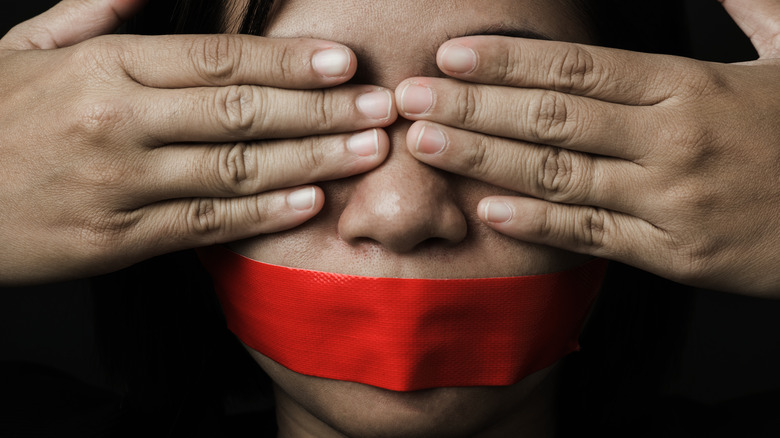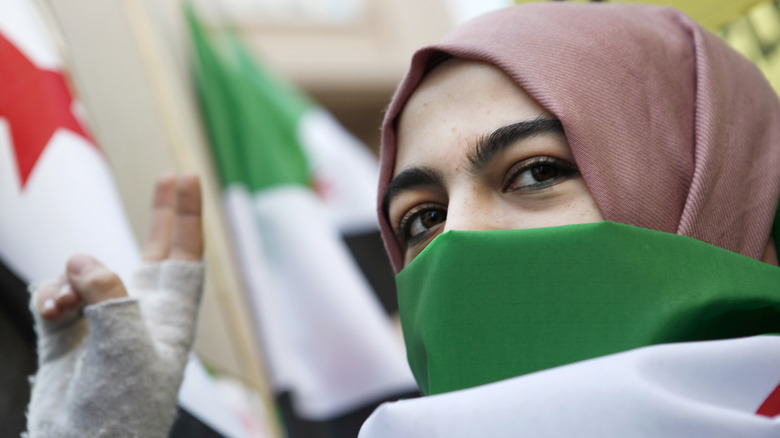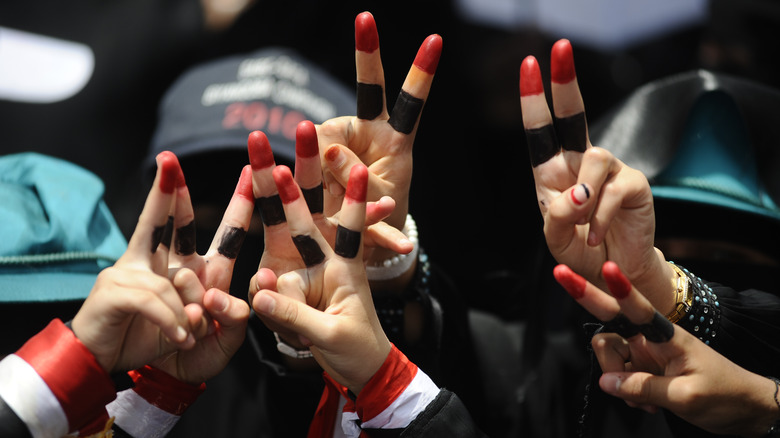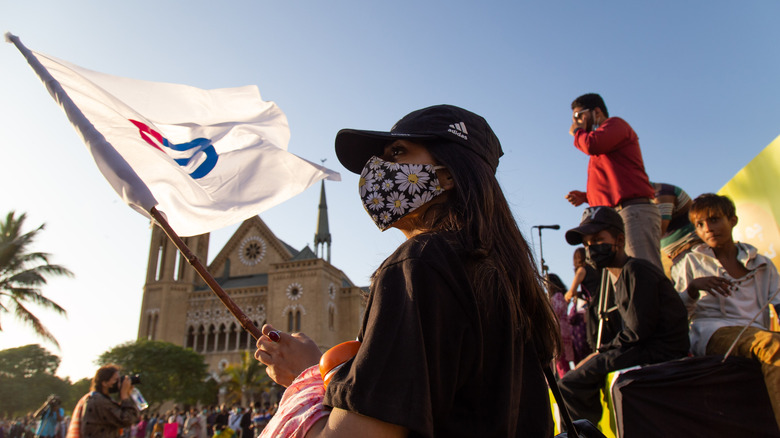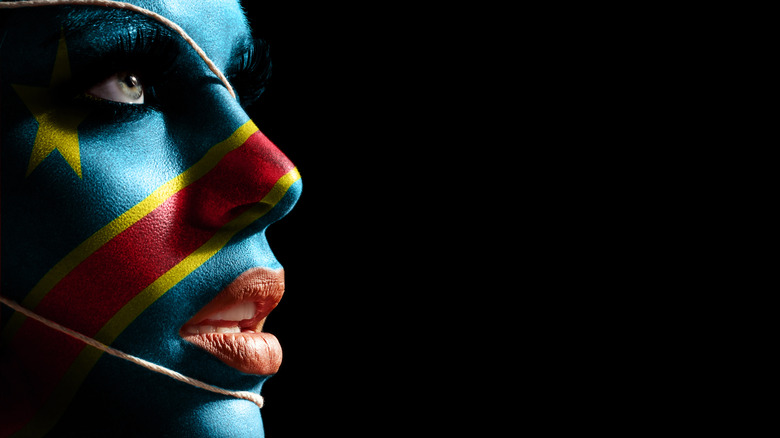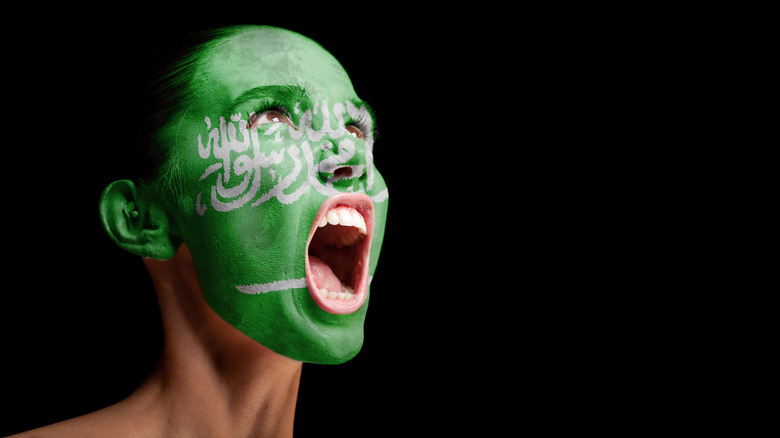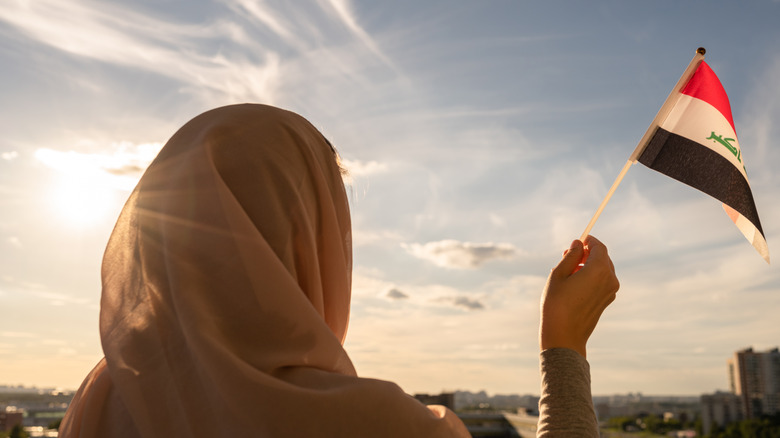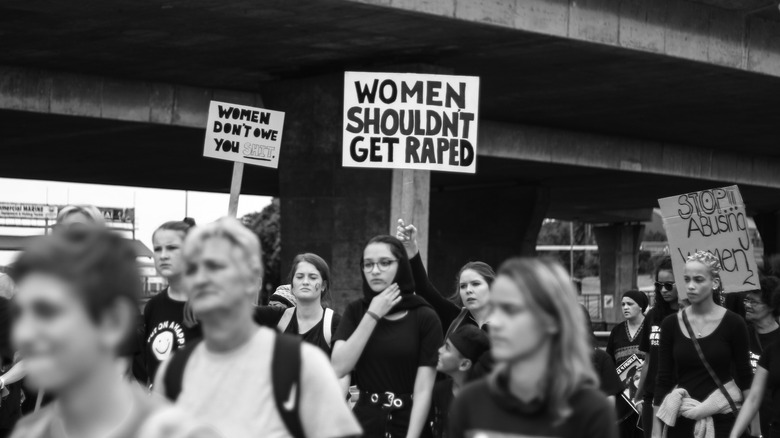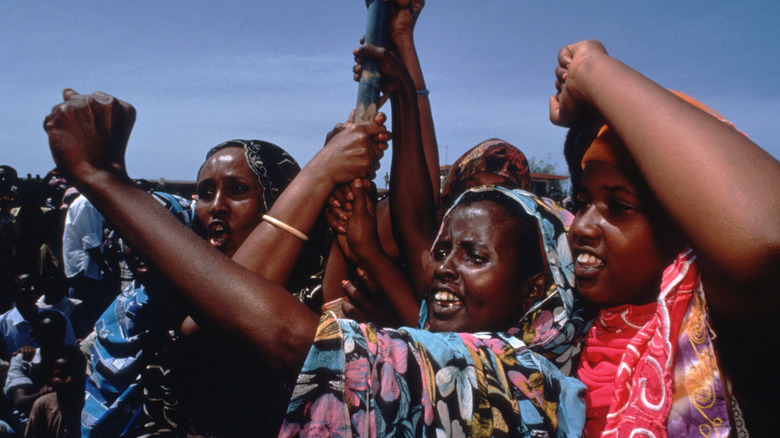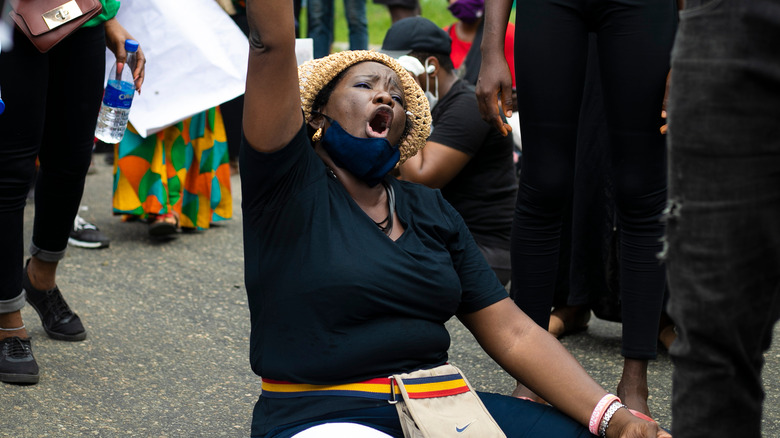The Most Dangerous Places In The World For Women
The ideas that excludes women from public spheres impose different physical, mental, and emotional restrictions on them and also subjugate their lives. "We cannot understand the modern developments, including our present problems, unless we include all those who were 'defined into nature' by the modern capitalist patriarchs: Mother Earth, Women and Colonies," explains Maria Mies in "Patriarchy and Accumulation on a World Scale."
Mies highlights the role of the violent, systematic modus operandi of western patriarchy and the omnipresent sexual division of labour, describing a system where "certain categories of men, later certain peoples, were able mainly by virtue of arms and warfare to establish an exploitative relationship between themselves and women, and other peoples and classes." Through this, the polarization between men and women becomes final.
There are some countries that rate worse than others on the indexes of gender violence, gender gap, and economic inclusivity. But there is no country in the world where all women are safe. Shocking rates of gender-based violence across the globe, including in contemporary democratic societies, prove that the global society is far from equal. Or safe. These are the most dangerous places in the world for women.
Afghanistan
Afghan women never had it easy, with Afghanistan already ranking as the least friendly country for women in 2011, when the Thomson Reuters Foundation (TRF) evaluated countries on the basis of the risks local women are exposed to. Afghanistan was rated as the most dangerous on the list due to deep poverty, heavy military violence, and restricted access to healthcare (via News).
When Georgetown Institute for Women, Peace and Security (GIWPS) initiated a similar study in 2017, the results were similar, with Afghanistan taking 170th place out of 170 investigated countries. But they did find out that the results varied heavily between different provinces, as in case of intimate partner violence rates. In terms of inclusion, Afghan women had the lowest level of schooling among all inspected countries in 2021 at just 1.9 years per woman. Female employment was low as well, with only 19.2% of women working, while women's cellphone usage lowered 10%, from 52.8% to 42.7%. The most worrying results came in the areas of security, where women's perception of safety saw a massive downfall, making Afghanistan the least safe country on the list.
The recent Taliban takeover in 2021 further removed women from the public presence, preventing them from being a part of education, forcing them to leave professional positions, and restricting every aspect of their lives: "Afghan women and girls are facing both the collapse of their rights and dreams and risks to their basic survival," told human rights scholar Halima Kazem-Stojanovic to Human Rights Watch.
Syria
Another country torn by the civil war, Syria ranked as the third most dangerous country for women in the world, reveals the 2018 TRF report. Syrian women face high risk of conflict-related — as well as domestic — violence, non-existent access to healthcare, and high levels of sexual abuse.
Economic participation is low, with 13.5% of women working, and only 19.6% of the female population having any kind of personal access to financial means, reports GIWPS. While the level of organized violence in the country has lowered since 2017, female perception of community safety was still exceptionally low at 16.9%.
According to the United Nations Women, the situation is worsened by the continuous lack of food and safe water. Educational opportunities are scarce to non-existent, while child marriages are affecting 69% of Syrian communities. But women are fighting back against gender-based violence as well as the conflicts in the country. In 2016, the first Syrian Women's Advisory Board was established with the intention of helping with the conflict resolution process in the country: "We, the Syrian women, can — and may well be — the backbone of Syrian peace and reconciliation," concluded SWAB member Insaf Hamad.
Yemen
According to the Global Gender Gap Report 2020 conducted by the World Economic Forum, Yemen is the country with the biggest gender gap in the world – as it has been for 15 years in a row. It follows other countries in the Middle East and North Africa region, with seven out of 10 countries with the greatest gap being a part of this area. Economic participation and opportunities are extremely limited for women, as well as educational attainment and political empowerment. Yemen women earn a fifth of what Yemen men are earning, and the country is characterised by high discrimination against women in workplaces. There is also a very low number of women in positions as legislators, senior officials, and managers. There are no women in the parliament; only a third of women in Yemen are literate. While health and survival rates are similar to those in Iran, Singapore, and Cyprus, prevalence of gender violence is high, coming in at 67%.
As explained by Amnesty International, armed conflict is not the only thing that endangers Yemen's women: The bigger problem are patriarchal attitudes, deeply ingrained in the mentality of the Yemen society, further supporting gender stigma and even legally supporting discrimination between women and men. Women are facing different kinds of attacks when traveling unaccompanied, often experiencing violence at checkpoints held by Huthi authorities. Some of these measures include head-shaving to induce psychological trauma. Men act as protectors of their female relatives in Yemen society, but when protectors disappear due to conflict, women are prone to severe harassment.
Pakistan
According to data gathered by GIWPS, different regions in Pakistan present disparate levels of danger to women. In areas with continuous armed conflicts, such as KPK and Balochistan, Pakistani women are subjected to high levels of organized and domestic violence. In 2021, Pakistan ranked at the bottom of the women's financial inclusion index and has the highest rate of discriminatory norms. While poverty in the country was significantly reduced in the last 20 years, the inequality between men and women persists. Only 10% of women in the least developed areas are employed, and the majority of them are working without being paid. The average woman spent 3.9 years in school — compared to 6.4 for men — and only 10% finished secondary school. Only 16% of women own a mobile phone.
Large numbers of women who have access to the internet and mobile phones regularly face online harassment, reports Amnesty International. Many people in Pakistan believe internet is not for women, and communities in Muslim regions forbid women to go online. So, they do it in secret, only to face "blackmail, photoshopped pictures, hacking of personal accounts and rape threats," explains digital right activist Nighat Dad. Rape crimes are filmed and distributed online to shame the victims, widely spreading the practice of online blackmailing, where aggressors demand money in exchange of personal data.
Democratic Republic of Congo
Women of the Democratic Republic of Congo (DRC) face extreme levels of sexual violence, which became an acceptable modus operandi in the country. The violent battle for fertile land, full of resources such as gold and copper, is closely connected to systematic methods of sexual violence practiced in the country: "By destroying the women, we are destroying the whole family. If the woman is raped, she doesn't have any value anymore. They will be chased out of their home. And the husband will move out because he needs to hide his face," Caritas member Lulu Mitshabu summarized testimonies from the local women to News.
The country doesn't implement specific law that would prevent sexual violence; on the contrary, the blame falls solely on the victim – with the attacker unaffected. In 2014, Caritas Australia declared the DCR as the most dangerous place in the world to be a woman, where even being a soldier suggests a safer option.
Women in Democratic Republic of Congo face systematic campaigns of sexual violence from birth, describes Amnesty International. They are exposed to sex trafficking and military gang rapes, but also brutal domestic violence, as spousal rape is not illegal in the DRC.
If you or someone you know is dealing with domestic abuse, you can call the National Domestic Violence Hotline at 1−800−799−7233. You can also find more information, resources, and support at their website.
Saudi Arabia
Women of Saudi Arabia are subjected to Sharia law, a legal system including a number of restrictions targeted specifically at women. According to the Human Rights Watch, under this system, women are afforded few rights, often married off young and thus at high risk of domestic violence. Even the laws meant to protect women aren't well enforced, leading to thousands of cases a year. Women also still need the approval of their male relatives to leave a safe house, prison, or even decide to marry.
There has been some progress, though. Since 2019, Saudi Arabian women are finally allowed to travel without the approval of their male guardian, a longstanding practice in the country. As reported by The Guardian, women gained several fundamental rights with the law, such as passport possession, marriage registration, divorce, and the right to possess ID cards. Mothers became officially recognised as rightful guardians of their children; before 2019, that right belonged solely to men.
In 2018, another victory was won for Saudi Arabian women when the driving ban was finally lifted — the first time in the history of the country — and they were finally legally allowed to drive on their own. After a years-long battle with the authorities, 120,000 women applied for a driver's license on the first day possible, reports CNN. But making the Saudi Arabian society more inclusive isn't quite the final goal of Saudi Arabia's leaders; they are thinking about financial gains. Vision 2030, the economic recovery plan of the country, predicts a higher number of female employees as part of a more productive society. So while some restrictions have been loosened over the years, women are still far from free.
If you or someone you know is dealing with domestic abuse, you can call the National Domestic Violence Hotline at 1−800−799−7233. You can also find more information, resources, and support at their website.
India
When TRF ranked India as the most dangerous country in the world for women in 2018, many Indian people disagreed.
The TRF report stated there are high levels of sexual violence and harassment in the country, with widespread human trafficking practices, forced prostitution, and even domestic slavery, along with numerous cultural traditions which degrade women. But, as reported by BBC, many Indian institutions defended their country, saying there are countries far worse than India. The real reason behind high rape numbers is the higher prevalence of rape reports, which didn't happen before.
Nevertheless, different surveys still support the statement that Indian women experience great struggles, explains Geeta Pandey for BBC News. Official crime statistics from 2016 recorded brutal levels of sexual violence along with other violent attacks, such as dowry deaths and acid attacks. According to Deepa Narayan for The Guardian, these violent actions are based on patriarchal ideologies, present all across the Indian society. The idea of a silent, obedient woman is still deeply ingrained in people's minds, as well as in young girls' upbringing – 50% of the population supports the idea that sometimes, women should be handled with violence. Indian women are distanced from their bodies, often hiding consequences of sexual harassment, as they want to avoid public shame. They distrust each other, following the premise that other women can't be trusted – another lie the Indian culture instills in them from an early age.
Iraq
According to The Global Gender Gap Index 2020 report, Iraq is the country with the second biggest gender gap, just above Yemen. Economic opportunities for women are severely restricted; Iraq scored the lowest among all on this front. Educational attainment is slightly better, while the health and survival index in Iraq is similar to those of Cuba or Latvia.
The country faces high levels of intimate partner violence and high levels of son bias, a preference that favors baby boys over baby girls, to the extent when baby girls are killed before or after birth. The GIWPS country profile also reveals that Iraqi society has many prejudices against females in the workplace, since there is the highest number of men in any country which believe that women should not be employed at all.
Iraq is also confronting a different problem, relating to the internal war against the Islamic State group, reports Amnesty International. As a consequence of these battles, thousands of Yezidis people are displaced, living in internally displaced people camps (IDPs), or being captured by the Islamic State. When families are torn apart by violence, women are often left alone, targeted by men from Syria or Iraq, who intentionally exploit them as sex slaves. In camps, women are subjected to violence from different sources, including the official authorities, camp managers and security forces.
South Africa
South African women are subjected to high levels of sexual violence, according to Africa Health Organisation. A half of the female population experience gender-based violence during their lifetime, while a staggering 76% of men admitted to committing violent acts towards women. According to research conducted in between 2019 and 2020, a woman was killed every three hours. Femicide in South Africa is five times higher than the global average, ranking South Africa among the five countries with the highest rates on this front. The consequences of gender-based violence are dire, with many women experiencing unsafe abortion practices, high maternal mortality, and sexually transmitted disease. South African women have a 50% higher chance of contracting HIV than women in other countries.
As explained by Human Rights Watch (HRW), these dark statistics are not surprising, considering the history of the apartheid regime in the country. Another troubling detail is the virgin myth, with some believing sex with a virgin can cure HIV. Along with this, the younger the girl is, the smaller chance there is of her already being infected: "It is difficult to say where the myth about sex with a virgin will cure AIDS came from — some believe that it was from traditional healers. What we do know is that it causes enormous suffering to children who become the victims of this misinformation and we believe the myth should be actively targeted in the media and all HIV/AIDS education programs," a child abuse activist told HRW.
Somalia
Somalian people are in perpetual humanitarian crisis due to climate change, armed conflicts, and extreme poverty. It is not surprising the country also ranks as one of the most dangerous places in the world to be a woman, with the female population facing sexual violence on a daily basis. Many people don't have a home, and with numerous women living in temporary accommodations, such as camps for displaced people, they have zero security. Three quarters of women exposed to gender-based violence are from displaced communities, relying on humanitarian and state aid for living.
The COVID-19 pandemic only furthered the problem, reveals the 2020 report published by the United Nations Population Fund. Gender-based violence has risen, while many institutions that offer safe spaces for survivors closed the doors of their local branches. Intimate partner violence increased 55%, with physical assaults and rape also increasing by 61% and 12%, respectively. Female genital mutilation is another harmful practice that endangers Somalian women and violates their rights to body autonomy. The COVID-19 pandemic increased the number of cases, many due to school closures, since the girls had more time to heal after the brutal procedure.
Data gathered by Human Rights Watch shows further increases in gender-based violence, often resulting in murders. Somalian law does not recognise rape as a body violation; instead, it sees it as an "offence against modesty and sexual honor." Sharia law is also practiced in the country, and the government often interferes with investigations in sexual violence cases.
Nigeria
Nigerian women are exposed to different forms of violence, harmful traditional practices such as genital mutilation, and are often victims of human trafficking. Reuters listed the country as one of the least safe places for women in the world, ranking in the bottom 10 in 2018.
There is an ongoing fight to improve the situation, including the push to implement the Gender and Equal Opportunities (GEO) Bill, which would secure women's rights to safety and equal opportunities. The initiative is led by Senator Biodun Olujimi and has been in talks since 2016. The GEO Bill was rejected several times, with the argument that these rights are already included in the Nigerian Constitution. The bill was rejected again in December 2021, reports Global Citizen.
As a part of initiative to end gender-based violence in the country, The Women At Risk International Foundation (WARIF) organized a No Tolerance March in Lagos in December 2021, with many women joining: "Women need to be protected and women need to be believed. Women do not need to be victimized and when a woman says no, she means no. No doesn't mean I'm thinking about it or I like it. No means no. Women should not be abused under any circumstance," explained Kemi Lala Akindoju, one of the protesters, to Global Citizen.
